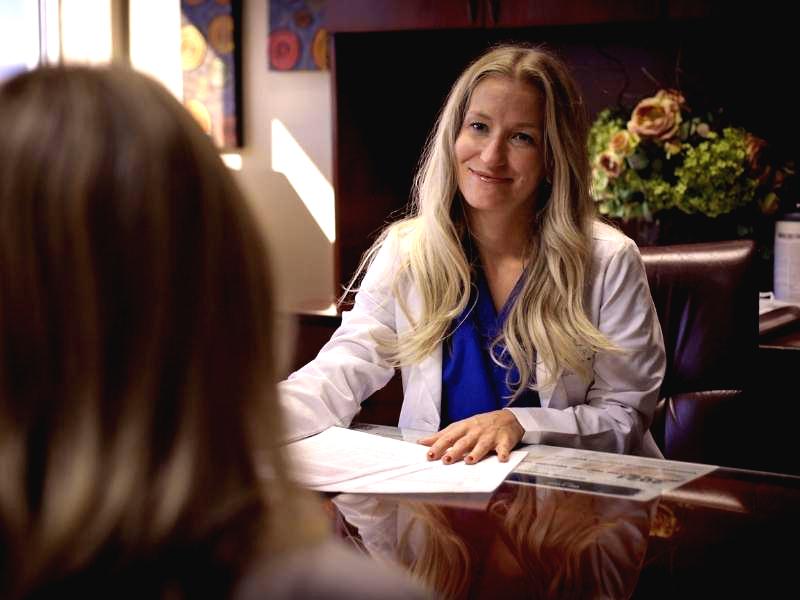Endometriosis affects nearly 10% of women between the ages of 25-45 and can often be the underlying source of infertility for many. Recently, actress and comedian Amy Schumer opened up about her struggles with endometriosis and subsequent surgery on her Instagram page, “My pain is real. Your pain is real. We have to advocate for ourselves. We have to speak up. And you know what? I’m worried this video is annoying, but I don’t care, because I hope that it helps one woman go and find out why she’s in so much pain.”
We sat down with Dr. Natalia Grob, from Conceptions Reproductive Associates of Colorado to learn more about endometriosis, infertility, and Amy Schumer’s case. Dr. Grob thinks stories like Amy Schumer’s can be helpful to hopeful patients. “Social media and the sharing of information like her story helps to create a conversation about infertility and provide a community of support. Numerous celebrities have joined the dialogue about their struggles with infertility and many of my patients find it helpful and encouraging,” offered Dr. Grob.
Endometriosis is a medical condition where the lining inside a woman’s uterus implants on the outside of the uterus. Blood accumulates most often near reproductive organs causing pain, inflammation, and scar tissue. During a normal menstrual cycle, endometrial tissue sheds on a monthly basis. For patients with endometriosis, blood builds up outside the uterus which can be very painful and lead to many health issues, including infertility.
Dr. Grob employs a team-based approach to pelvic pain and overcoming infertility, “The pain caused by endometriosis can be significant for many of my patients. Sometimes they just want to be heard and reassured that what they are feeling is just not normal. Pain can be your body’s way of telling you that something is wrong and that you may have difficulty conceiving in the future.”
Scar tissue from endometriosis may obstruct the path of an egg traveling through the fallopian tube on its way to the uterus and prevent pregnancy or impact egg quality. However, patients can still get pregnant by using fertility treatments like in vitro fertilization (IVF). Dr. Grob explained, “Women suffering from endometriosis and trying to get pregnant need to know that they have successful treatment options and they’re not alone. They should look for fertility care to plan for their pregnancies based on their family size goals and determine a treatment plan for their endometriosis-related pelvic pain.”
Dr. Grob added, “IVF can allow women with endometriosis to plan for their families and reduce the risk of worsening disease while attempting pregnancy. I also like to remind patients that not all clinics are created equally and encourage patients to be informed consumers by selecting fertility clinics that demonstrate success rates at or above U.S. benchmarks as we do here at Conceptions.”
The causes of endometriosis are still unclear, although a few factors of influence have been identified including genetics, surgical complications, and lymphatic system problems. Data supports that some women may be at increased risk for developing endometriosis for a number of reasons including family history, uterine abnormalities, and environmental factors. Dr. Grob elaborated on the need for a team approach to finding success, “Overcoming infertility and endometriosis requires the right combination of hands-on support, science, and often times multiple providers. We treat people, not just patients, in my practice.”
If you’ve been experiencing pelvic pain and trying to get pregnant connect with Conceptions today. With success rates that exceed U.S. benchmarks and four Denver-area locations, patients are supported by success at Conceptions Reproductive Associates of Colorado.


